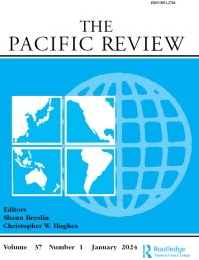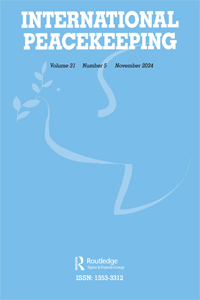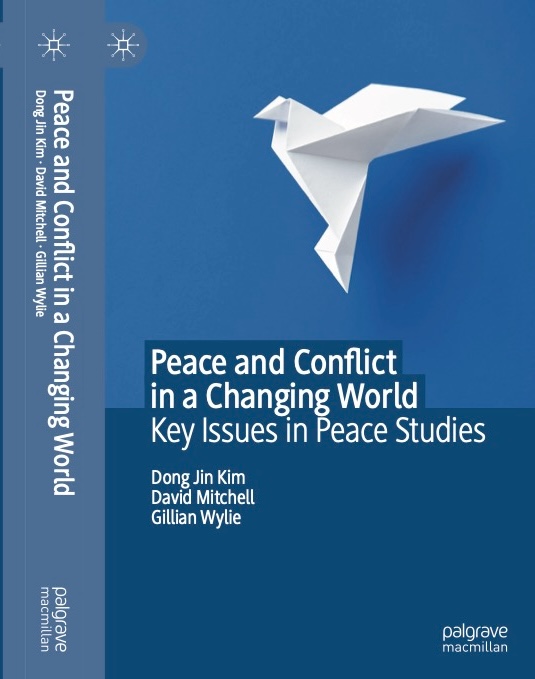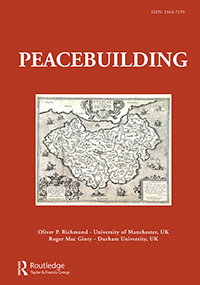Old Wine in New Bottles?
This article examines the utility of the Triple (Humanitarian, Development, Peace) Nexus in linking aid cooperation to peacebuilding by conducting a case study on the Korean peninsula. Since the 1990s, humanitarian and development cooperation in North Korea has raised hopes that such cooperation could contribute to peacebuilding on the Korean Peninsula. However, these aid efforts have been marked by significant fluctuations due to heightened tensions on the Korean Peninsula. This study employs a qualitative methodology, including problem-centred expert interviews with former/current officials from the UN, and European aid agencies, who are considered relatively neutral, and the US and South Korean aid agencies, whose countries are main parties in the Korean conflict. Drawing on the interrelated theoretical insights of contact theory and strategic peacebuilding, the findings suggest that aid actors have different strategic advantages and disadvantages in operationalizing the Triple Nexus, according to their positionalities concerning the protracted Korean conflict context. We argue that for the Triple Nexus to represent more than a mere rebranding of contentious efforts to connect aid and peacebuilding, it requires, not only the recognition of potential comparative advantages of different sectors, but also the understanding of strategic advantages and disadvantages of actors with different positionalities.
key Issues in Peace Studies
Written by a team of experienced teachers and researchers in Peace Studies, this book assesses the field of peace and conflict research from its origins to the present day. It introduces influential concepts and theories, and examines the processes and dynamics of peacebuilding. Using case studies from around the globe, the book discusses a range of key topics in Peace Studies, such as: the meanings of peace; the causes of violent political conflict; peace processes and peace agreements; international peace and security; peace activism and the role of civil society; human rights, transitional justice, and reconciliation; asylum, migration and borders; gender, war, and peace; sustainable development and peace; religion, conflict, and peace; arts, sport, and peace; and peace education. The book will be of interest to scholars and students in peace studies, international relations, security studies, war and conflict studies, conflict transformation, as well as anyone interested in the research and practice of peace.
This article proposes a trans-local turn in peacebuilding in frontier societies. Drawing on René Girard’s concept of ‘mimetic desire’, the article conceptualises how a crisis of ontological insecurity cannot be addressed by rational approaches to institutionalising a process to resolve incompatibilities between conflict parties, but requires de-escalation of the mimetic rivalry between the parties, who are often described as being in conflict over identity. Empirically, the article focuses on the, apparently very different, examples of intractable conflicts in Northern Ireland and Korea, and the trans-local peacebuilding interactions between the two. This article demonstrates how relationships of unresolved mimetic rivalry have intensified ontological insecurity in both cases, creating dynamics of existential anxiety and mutual antagonism, and how the reflexivity based on peacebuilding stories from other frontier societies, which do not impose direct ontological threats, appears to increase hope for change by transcending the endemic sense of ontological insecurity.
Journal Article, 2024

The structural dynamics of the Korean conflict has evolved not only with the inter-Korean rivalry, but also the geopolitics of great power rivalries. The conflict structure was reinforced going through the Korean War and the Cold War. There have been several South Korean initiatives to build peace with North Korea in the post-Cold War era, however the peace process fluctuated due to the escalation of the US-North Korean conflict over the nuclear and missile development of North Korea, and the dispute over North Korea policy in the South Korean society. Building on the sociological understanding of ‘duality of structure’ and the biological insight of ‘niche construction’, this article demonstrates the South Korean potential, as a democratic state, to construct a niche space for its citizens’ peacebuilding with North Korea under the ongoing Korean conflict structure, as well as its limitations in protecting the space before scaling out the disruption of the conflict structure, when governments do not have a clear sense of agency about their policy due to the lack of consensus among its citizens.



